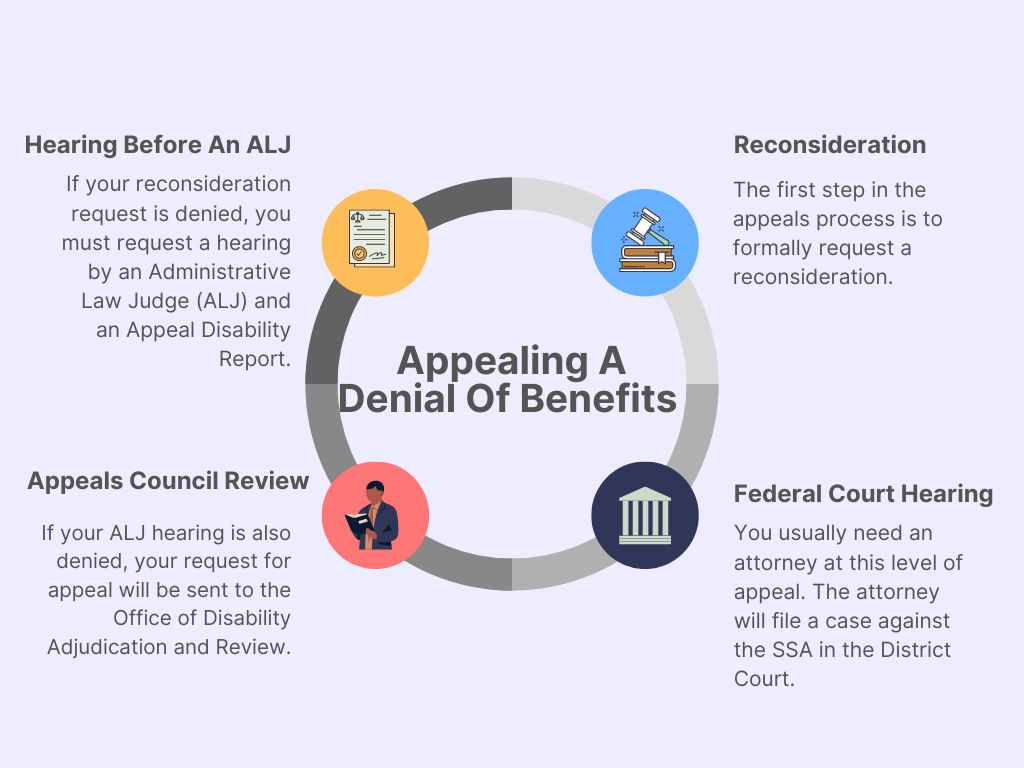If you become disabled and therefore unable to work, you may start facing financial worry on top of physical pain and mental stress. As a North Carolina resident, you can apply for different Social Security Disability (SSD) programs that offer some much-needed relief. A North Carolina disability benefits lawyer at Clauson Law may help you determine if you have substantial employment history and other requirements needed to qualify for SSD benefits. If you or a loved one suffers from a physical or mental impairment(s), going through this blog post may help you understand whether you meet disability benefits eligibility criteria.
At Clauson Law, we have helped thousands of disabled applicants fight for the benefits that they need and deserve. If you have any questions or doubts about applying for SSD benefits, contact an experienced North Carolina disability benefits lawyer at our firm to help you win Social Security Disability Insurance (SSDI) or Supplemental Security Income (SSI) benefits.
Are You Eligible For North Carolina Social Security Disability Benefits?
The Social Security Administration (SSA) requires that your physical or mental health impairment(s) meet the definition and standards of disability set by the federal agency. To meet the disability definition standards and qualify for SSD benefits, you must prove that your injury or illness:
- Is medically determinable and prevents you from engaging in substantial gainful activity; and
- Has lasted for at least 12 months or is expected to last for at least 12 months or result in death.
To prove that you meet this eligibility criterion, you need to furnish evidence in the form of medical records, doctor’s opinions, diagnostic test results, and other documents that establish the nature and character of your physical or mental health impairment(s).
Criteria To Qualify For SSDI Benefits
To qualify for the Social Security Disability Insurance program of the Social Security Administration, you must also prove that you meet certain non-medical requirements to qualify for disability benefits.
You are required to prove that you have worked long enough at a job or through self-employment and have paid sufficiently into Social Security to qualify for benefits. For this purpose, the SSA examines whether you have sufficient work credits to qualify for SSDI benefits.
To qualify for SSDI benefits, you must have worked either at a job or through self-employment. The benefit payments under the SSDI program too are financed by payroll deductions paid into the Social Security system. For each year you earned a minimum income and paid Social Security taxes, you earn four work credits, one for each quarter of the year. As a general rule, 40 work credits are required for you to become eligible to apply for and win SSDI benefits. Moreover, half of those work credits must have been earned over the last ten years.
For younger workers who get disabled before earning sufficient work credits, an adjusted scale is used by the SSA. It requires a reduced number of work credits adjusted according to the number of years after the applicant turned 21 years of age and the time for which the applicant worked after that.
When you have earned sufficient work credits and satisfy the minimum eligibility criteria to meet the SSA’s meaning and standard of “disability,” you should be able to win monthly SSDI benefits.
Eligibility Criteria For Winning SSI Benefits
The SSDI is a federal insurance program that covers workers and past workers having sufficient work credits. On the other hand, SSI is a needs-based monthly benefits program aimed at individuals who do not have sufficient resources to buy food and shelter. Therefore, the SSA prescribes no minimum work/ earnings requirements to qualify for SSI benefits.

To win SSI benefits, you must prove the following two requirements:
- You must be aged at least 65 years, or you must be blind or disabled.
- The monthly income and resources/ assets at your disposition should not exceed the prescribed limitations for winning benefits under the program.
While SSA does impose limitations on your income and resources for winning SSI benefits, not all earning sources count towards your income for this purpose. At Clauson Law, an experienced North Carolina SSI lawyer can help you determine if a particular source of your income is to be counted for SSI benefits.
According to the given limitations, you cannot have resources worth over $2,000 as an individual or $3,000 as a couple if you are to qualify for SSI benefits. For this purpose, a resource is something that can be converted into cash to buy food and shelter. Stock and real estate are examples of such resources that can be converted into cash to buy food or shelter. However, resources like the home you own, and your primary residence are not counted towards determining your SSI eligibility.
How to Apply For Disability Benefits in North Carolina?
While the state of North Carolina does not require you to hire a disability benefits lawyer to apply for SSD benefits, engaging an experienced and knowledgeable expert would improve your chances of winning the benefits you need and deserve. The complicated federal regulations and intricate SSD application process set up by the SSA make winning disability benefits overly difficult. Over two-thirds of applications for SSDI or SSI benefits made to the SSA receive a denial notice due to several reasons, including lapses in the application and supporting documents.

At Clauson Law, we offer our expertise right from the initial disability determination stage to different levels of the SSD appeals process. We also ensure that your application, medical records, and the supporting documentation contain all the details that are required by the SSA to deem you disabled and qualified for SSD benefits.
Appealing A Denial Of Benefits In North Carolina
Many SSD applicants get their disability benefits rejected despite fulfilling all eligibility requirements. It is natural to get dejected at being denied disability benefits, but you should consider appealing the denial of benefits and take on the SSA for the benefits you deserve.

Individuals who are appealing their denial can go through four levels of the appeals process. However, you must not make any delay in filing the appeal as you get only 60 days to file an appeal after receiving the notice of denial. There are four levels to the disability applications appeals process:
1). Reconsideration:
The first step in the appeals process is to formally request a reconsideration. Your case will then be forwarded to the State Disability Determination Service (DDS). At this stage, your medical records and other documentation will be reviewed by an examiner other than the original one. The examiner will make a new disability determination. Otherwise, move on to the next level of the appeals process.
2). Hearing before an Administrative Law Judge (ALJ):
If your reconsideration request is denied, you must request a hearing by an Administrative Law Judge (ALJ) and an Appeal Disability Report. The waiting time for a hearing before an Administrative Law Judge depends upon the pendency before the hearing center to which your case has been assigned. After consulting your representative, the ALJ will decide whether you should be approved for benefits.
3). Appeals Council Review:
If your ALJ hearing is also denied, your request for appeal will be sent to the Office of Disability Adjudication and Review. The assigned reviewer will go through the medical records and notify you in writing of the decision in the case. At Clauson Law, we can help prepare a proper appeal petition and other medical documentation to help you win the benefits you deserve,
4). Federal Court hearing:
You usually need an attorney at this level of appeal. The attorney will file a case against the SSA in the District Court. You usually need an attorney at this level of appeal. The attorney will file a case against the SSA in the District Court. Your case will be heard by a District Court Judge who will notify you in writing of the decision in the case.
If you are denied SSD benefits at all stages, you will have to file a civil suit for SSD benefits. However, it is a time-consuming process that could take several years for a final decision on your disability benefits.
Speak With An Experienced North Carolina Disability Benefits Lawyer For Winning SSD Benefits
Winning SSDI or SSI benefits could help get some much-needed financial relief from the distress caused by a physical or mental impairment(s). However, instead of taking the SSA on your own, you must contact an experienced North Carolina SSDI or SSI benefits lawyer for the disability benefits you need and deserve. Fighting for disability benefits on your own without any assistance could lead to a high chance of your application getting rejected.
At Clauson Law, an experienced and knowledgeable SSD benefits lawyer can help guide you through the entire disability benefits application process from the initial disability determination stage to the appeals process. Contact an experienced North Carolina SSDI or SSI benefits lawyer today for a free consultation and claim review.


